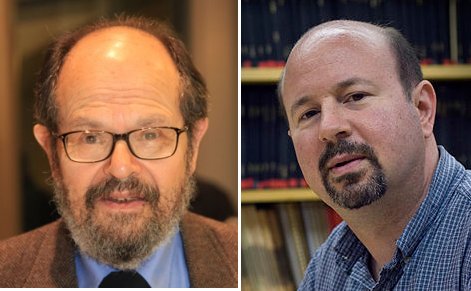
The 2013 report from the Intergovernmental Panel on Climate Change (IPCC) has been released. The final version of the Summary for Policymakers is out, and the complete report is also available. This report is supposed to help us understand what the scientific community says about climate change and whether or not people are responsible for all or part of it. The report says that warming of the climate system is “unequivocal” and that “Human influence on the climate system is clear.” Unfortunately, the scientific community seems rather split on whether or not the IPCC report is reasonable.
Dr. Richard Lindzen, Alfred P. Sloan Professor of Meteorology at MIT, had this to say about the report:
I think that the latest IPCC report has truly sunk to level of hilarious incoherence. They are proclaiming increased confidence in their models as the discrepancies between their models and observations increase…in attributing warming to man, they fail to point out that the warming has been small, and totally consistent with there being nothing to be alarmed about. It is quite amazing to see the contortions the IPCC has to go through in order to keep the international climate agenda going.
On the other hand, Dr. Michael E. Mann, director of the Earth System Science Center at Pennsylvania State University, wrote:
Climate change is real and caused by humans, and it continues unabated. We will see far more dangerous and potentially irreversible impacts in the decades ahead if we do not choose to reduce global carbon emissions. There has never been a greater urgency to act than there is now. The latest IPCC report is simply an exclamation mark on that already-clear conclusion.
Both Lindzen and Mann are recognized experts in climate science, they both have a long list of impressive contributions to the field, and they have radically different opinions when it comes to the IPCC report. Which one of them is closest to being correct?
If you’ve read this blog for a while, you know who I think it is. Indeed, long before the IPCC report was published, I highlighted what Dr. Lindzen mentioned in his quote above: the previous predictions of the IPCC have been dramatically falsified. While their models predicted that the globe would continue warming as carbon dioxide concentrations rose, the data most favorable to the global warming hypothesis stubbornly refuse to show any warming over the past 17 years, despite the fact that carbon dioxide concentrations have risen substantially over the same time period.
How does the IPCC deal with this uncomfortable fact? The Summary for Policymakers says:
Due to natural variability, trends based on short records are very sensitive to the beginning and end dates and do not in general reflect long-term climate trends.
In other words, it doesn’t matter what the data say for the past 17 years. That’s a short time period, which is most likely the result of natural variability. Now this is a very reasonable statement. Short-term trends should not be used to make long-term conclusions, but the fact remains that the very best climate models to date could not foresee this short-term trend. If we don’t understand short-term trends in climate well enough to take them into account in our models, what confidence do we have that we understand long-term trends well enough to say that warming of the climate system is “unequivocal?”
I personally think that Dr. Judith Curry, chair of the School of Earth and Atmospheric Sciences at Georgia Institute of Technology, has the best analysis of the IPCC report. On her blog, she writes that the IPCC suffers from a debilitating case of “paradigm paralysis.” It is unwilling to consider the data objectively, because its conclusion was determined before the data were analyzed. She further says:
The IPCC needs to get out of the way so that scientists and policy makers can better do their jobs.
I couldn’t agree more. It is possible that the globe is warming in a way that it has never warmed before. I strongly doubt it, and the data seem to support that doubt. However, we will never learn the real story by reading the nonsense put out by the IPCC. Its conclusions are not driven by science. They are driven by politics and the IPCC’s need to justify its relevance. If the IPCC stops wasting time and money, more resources can be devoted to the science that is being done by people like Dr. Lindzen, Dr. Mann, and Dr. Curry.
If we ever want to figure out climate change, it will be through work like theirs. It will not be through a political report like the IPCC’s.
